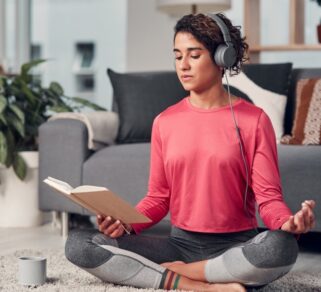Three-point action plan for clinicians to protect their mental health

Dinesh Bhugra outlines three ways for clinicians to help protect their mental health and wellbeing.
The Government has been advising us to stay home, reduce our interactions outside the house and only go out for essential shopping or exercise.
Being cooped up in the house for long periods can feel like being imprisoned although much more comfortable. It is difficult to ensure that our mental health is maintained.
For doctors, nurses, paramedics and other clinicians who are on the frontline managing cases in difficult conditions, it is important that three levels of actions are needed to protect mental health: institutional, familial and personal.
Related Article: NMC seeks nursing leader to oversee Code and revalidation reviews
· Institutional: For medical staff it is vital that their employing organisation ensures that they have plenty of room in their day to relax and unwind with appropriate nutritional diet and food. Personal Protective Equipment is essential. Employers have a moral duty to ensure that time for brief periods of rest, safe spaces to do so and food are accessible.
· Families: Families need to make sure that everyone needs to set some time aside even if it is 15 minutes only for themselves to relax, unwind and recover from the day. So when they get home, there should be space and time for them to unwind. Working conditions are likely to get worse before they get any better.
· Personal: People go into caring professions for all kinds of reasons including altruism. However, we must remain aware of our personal strengths and weaknesses getting away from messianic attitudes. Self-awareness and self -management on part of the healthcare professionals will enable better functioning.
Before the lockdown was announced, I was in Westminster seeing a friend and got into a black cab. As one would expect, we got chatting. Inevitably, the talk moved to coronavirus and infections. I very proudly (not that I had any role in it whatsoever) talked of elimination of smallpox from the globe, and he asked me what was that then?
He clearly had no knowledge of what a scourge smallpox had been. The impact of modern medicine in reducing infectious diseases, eliminating them even has been incredibly successful. Cleanliness, improved hygiene and vaccines have all contributed along with better diet.
It is crucial to recognise that even though a majority of population will get infected, a significant number of people will have minor symptoms and will fully recover.
Related Article: Tell us what practice nursing means to you and potentially win £1,000
Others will have severe flu-like symptoms and recover. But families of medical staff are likely to be at risk as are other essential, such as workers and teachers. There will be others who will worry about catching the infection and in some case washing and keeping clean may take on an obsessive-compulsive nature.
For clinical staff offering triage services, like anyone working from home, they need to put structures in place ensuring that work does not dominate their lives. It helps to stick to timings that one would have gone to the office, started work, time for tea/coffee/lunch breaks and by and large sticking to them.
Setting up small but achievable targets for the day can give a structure and produce a sense of achievement once the task has been completed. Using technology to have virtual meetings and communications can give a degree of connectedness which is useful in managing loneliness and improving morale. It is entirely possible that after the pandemic is over, there will be a major change in the way people work so preparing for that will be a useful first step.
If one is not keen on going out for exercise, walk or run then suitable time to relaxation must be allocated. For example, exercise bike if available. There was that recent example of a man running a marathon on his balcony so it can be done. Many online opportunities for yoga and meditation are easily accessible.
Related Article: MPs vote to legalise assisted dying in England and Wales
Managing relationships in these challenging times and getting support from families, friends and peers especially those who are not dealing with frontline issues is important.
Healthcare professionals are human and it’s their humanity along with that of the general population which will help prevent stress and burnout in these individuals.

See how our symptom tool can help you make better sense of patient presentations
Click here to search a symptom


The Government has been advising us to stay home, reduce our interactions outside the house and only go out for essential shopping or exercise.



